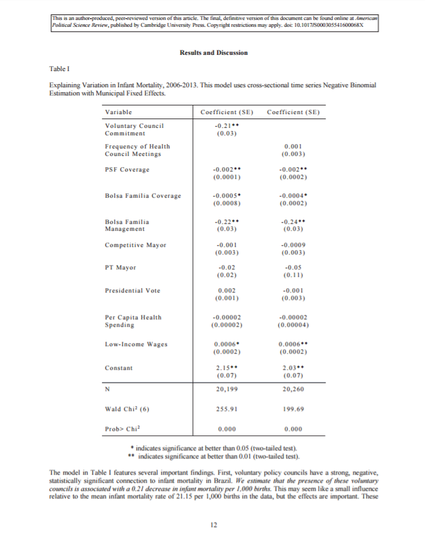
How does democracy work to improve well-being? In this paper, we disentangle the component parts of democratic practice—elections, civic participation, expansion of social provisioning, local administrative capacity—to identify their relationship with well-being. Our analysis of an original dataset covering over 5,550 Brazilian municipalities demonstrates that competitive elections alone do not explain variation in infant mortality rates, one outcome associated with well-being. We move beyond elections to show how participatory institutions, social programs, and local state capacity can interact to buttress one another and reduce infant mortality rates. The result is a new understanding of how different aspects of democracy work together to improve a key feature of human development.
This is an author-produced, peer-reviewed version of this article. The final, definitive version of this document can be found online at American Political Science Review, published by Cambridge University Press. Copyright restrictions may apply. doi: 10.1017/S000305541600068X
Available at: http://works.bepress.com/brian_wampler/48/
